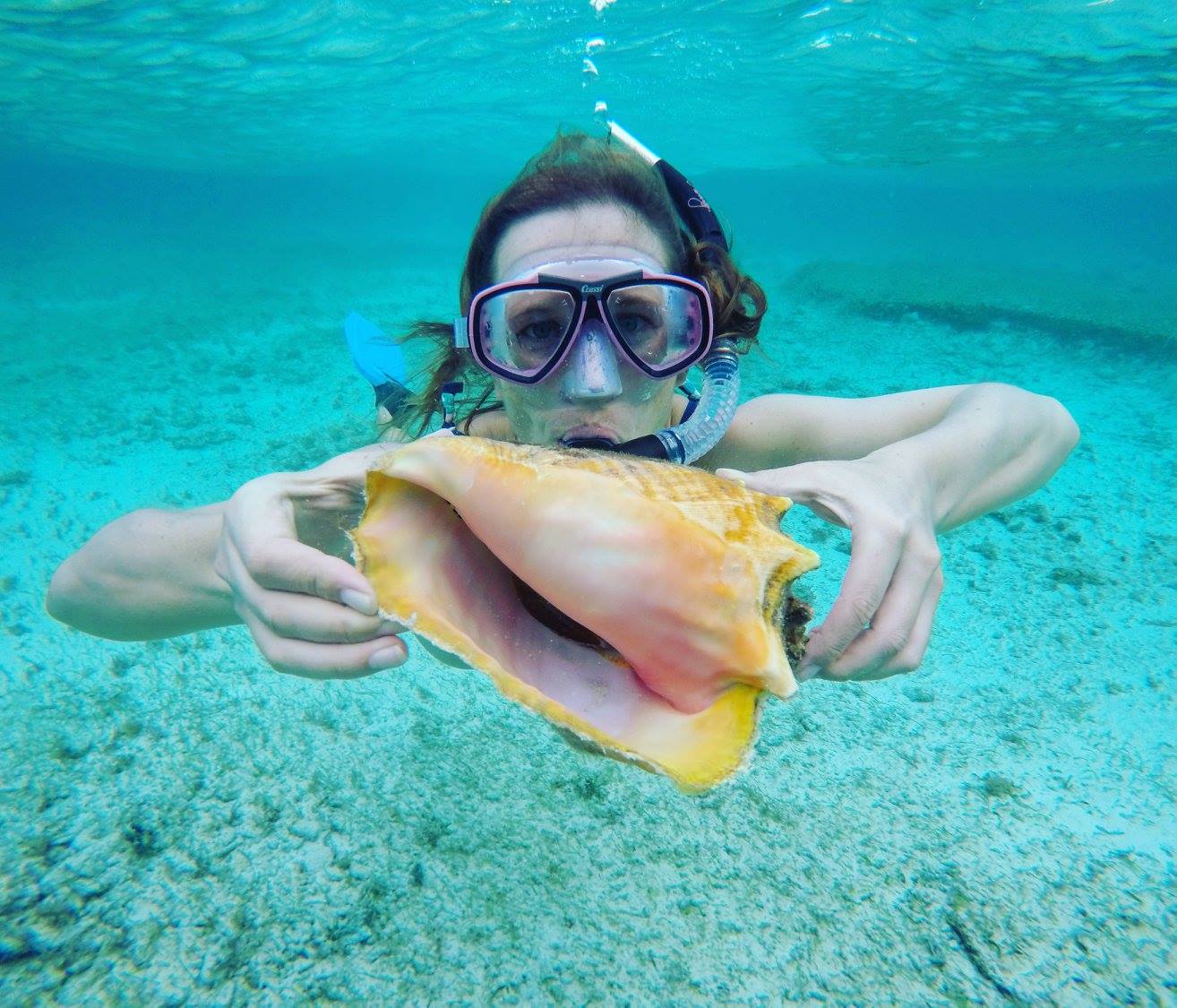
Look at that beloved Caribbean mollusk, the queen conch (pronounced “konk”).
The large marine snail—technically a gastropod mollusk—represents a huge part of Cayman culture. Their gorgeous pink spiral shells are widely found on our beaches. The fleshy, chewy meat is sliced and diced into fritters, salads, chowder, burgers, pasta, and handheld patties; it’s battered and deep-fried; it’s even scored (“scorched”) and eaten raw.
Conch ceviche (pictured below) is now featuring on The Brasserie menu, coinciding with the start of Cayman’s conch season on 1 November 2017.
For 65 million years, conchs have dwelled in the warm, mostly shallow waters of our planet. Their habitat of choice is just one factor contributing to their currently dwindling numbers—pollution has led to the degradation of their preferred seagrass beds, and shallow waters, where juveniles in particular cluster, are all too easy for humans to infiltrate. One estimate suggests that out of 400,000 offspring, fewer than one conch will survive into adulthood. This alarming statistic, coupled with other environmental and human pressures, signals a worrying time for the queen conch.
The Cayman Islands’ Department of Environment conducts an annual conch survey to monitor the success of marine parks and replenishment zones in stabilising existing populations. In addition, they continue to recommend a reduction in legal catch limits to supplement their efforts and help protect the queen conch for future generations. As mentioned above, conch season is closed 1 May through 31 October, with a catch limit of five per person or ten per boat per day, whichever is less.
Conch has a high nutritional value, making it one of our local superfoods. Conch is a good source of protein, but it also supplies a wealth of key vitamins and minerals including iron, vitamin B12, selenium folate and vitamin E, as well as being low in fat and carbohydrates.
The calcinated conch shell of Turbinella pyrum consists of calcium, iron and magnesium. It is well known in Ayurvedic medicine for its antacid and digestive properties.
Did you know that blowing conch shells is said to exercise the thyroid glands and vocal cords, thus acting as a natural solution to speech issues, including stammering problems? It’s also believed that blowing conch shells can be great exercise for the facial muscles and reduce wrinkles. And if you want to achieve that flawless glow, massage your face with water from a conch shell!
Click here for our mouthwatering farm-to-table Brasserie menus that include Chef Artemio’s delicious conch ceviche, only available until 30 April and the duration of Cayman’s conch season.


